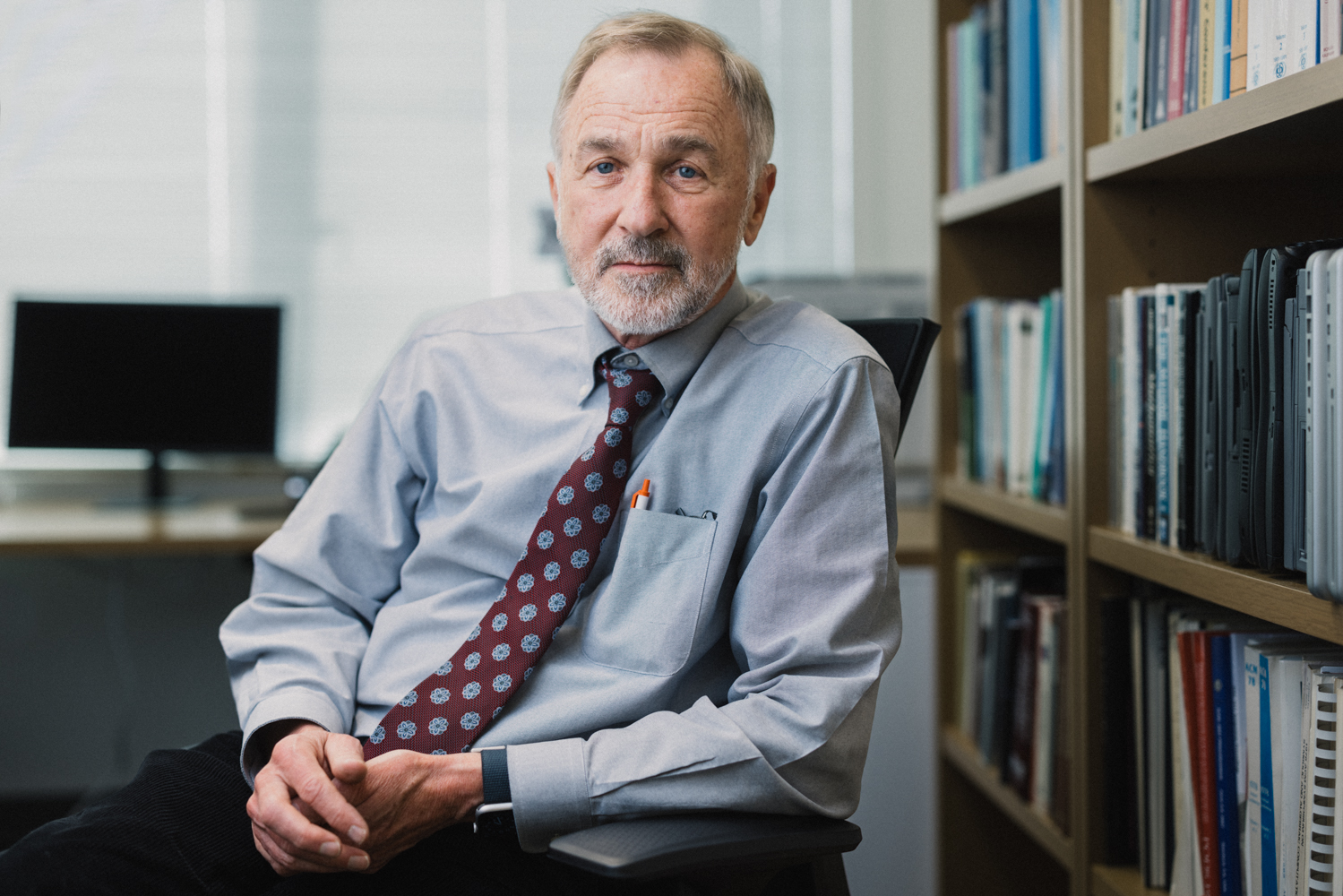Michael Genesereth is on a mission to bring logic education to high schools
The computer scientist says there’s not enough emphasis on teaching logic early. His latest effort to educate teens on the subject – which is broadly useful and crucial in computer programming – involves a new international olympiad at Stanford this spring and summer.

Michael Genesereth, associate professor of computer science, has made it his mission to promote the teaching of logic to students early, to help prepare them for college and for life. (Image credit: Andrew Brodhead)
Logic is pervasive. We use it in solving puzzles and playing games, in selecting products and evaluating political arguments. Doctors use logic to diagnose patients, lawyers use it to defend their positions in court, and programmers use it to debug computer programs. The ancient Greeks thought logic so important that they made it one of the core components of their curriculum.
That’s why Michael Genesereth, associate professor of computer science, finds it especially frustrating that few high schools today offer standalone courses in logic.
“Given the importance of the subject, this is surprising. Calculus is important to physics. And it is widely taught at the high school level. Logic is important in multiple disciplines. And it is essential in topics like computer science,” Genesereth said. “Yet it is rarely offered as a standalone course.”
Genesereth has made it his mission to promote the teaching of logic to students early, to help prepare them for college and for life. And it’s why this spring he is launching his most ambitious – and he hopes, most impactful – effort yet on this front: an international logic olympiad open to high school students around the world.
Introduction to logic
For the past 30 years, Genesereth has taught Introduction to Logic at Stanford. In the mid-2000s, he placed the course materials online, as well as interactive logic exercises and reasoning tools that he created with his graduate students. In 2010, it became a free massive open online course, or MOOC, enrolling hundreds of thousands of students of all ages and backgrounds, including high school students, who tended to perform well.
“That was really interesting to me, because I realized that we’re teaching something to undergrads that we actually could teach in high school,” Genesereth said.
That led to Logic For All, a grassroots initiative, led by Genesereth, to introduce logic education to secondary schools across the country.
Logic For All
For the past nine years, Logic For All has offered popular summer camps for high schoolers, both online and in person at Stanford. It offers a professional development course for high school educators interested in teaching the subject in their classrooms. Genesereth has helped introduce logic at select Bay Area secondary schools.
Recently, Genesereth’s course has been finding its way to secondary schools across the country. In Easton, Pennsylvania, for example, high school computer science teacher Bob Luciano is incorporating elements of the course in his class and finding huge success.
“Nobody in our school had ever passed an AP computer science exam until I started teaching it. Now we have, annually, more than 30 students passing,” Luciano said.
Nisanti Wilmot, a middle and high school teacher at Oakwood School in Morgan Hill, California, offered the logic course twice as an elective, where it has been well received. Her students enjoy the logic puzzles, proofs, and creating a logic-based project.
“Some of my students went to college, came back to visit me, and said, ‘We were doing discrete math in college and a lot of it was what you taught us in logic, and was super useful,’” Wilmot recalled. “They felt very prepared.”
International Logic Olympiad
Genesereth’s latest effort is the first International Logic Olympiad, a worldwide contest for secondary school students to showcase excellence in logic and problem-solving. Teams of students will compete in three rounds of online tests in the spring – April 27, May 18, and June 1. The best teams will compete in the final round in person at Stanford the first three days of July. The final round will include three additional exams; logic puzzles, similar to sudoku; and strategic games, similar to chess.
All participants will receive a certificate, with the winning team taking home a cash prize. Teams who make it to the final round at Stanford will participate in activities such as a tour of campus and a visit to the Stanford Robotics Center.
There are no academic requirements to compete. However, Genesereth said players will likely not perform well without some training in logic. He noted that Introduction to Logic is available for free online to anyone who wants to prepare.
Registration for the olympiad closes April 20, and the first quiz takes place on April 27.
“The real hope is that this olympiad will incentivize schools to offer logic and incentivize students to take those logic courses,” Genesereth said. “If that happens, then we can consider it a success.”